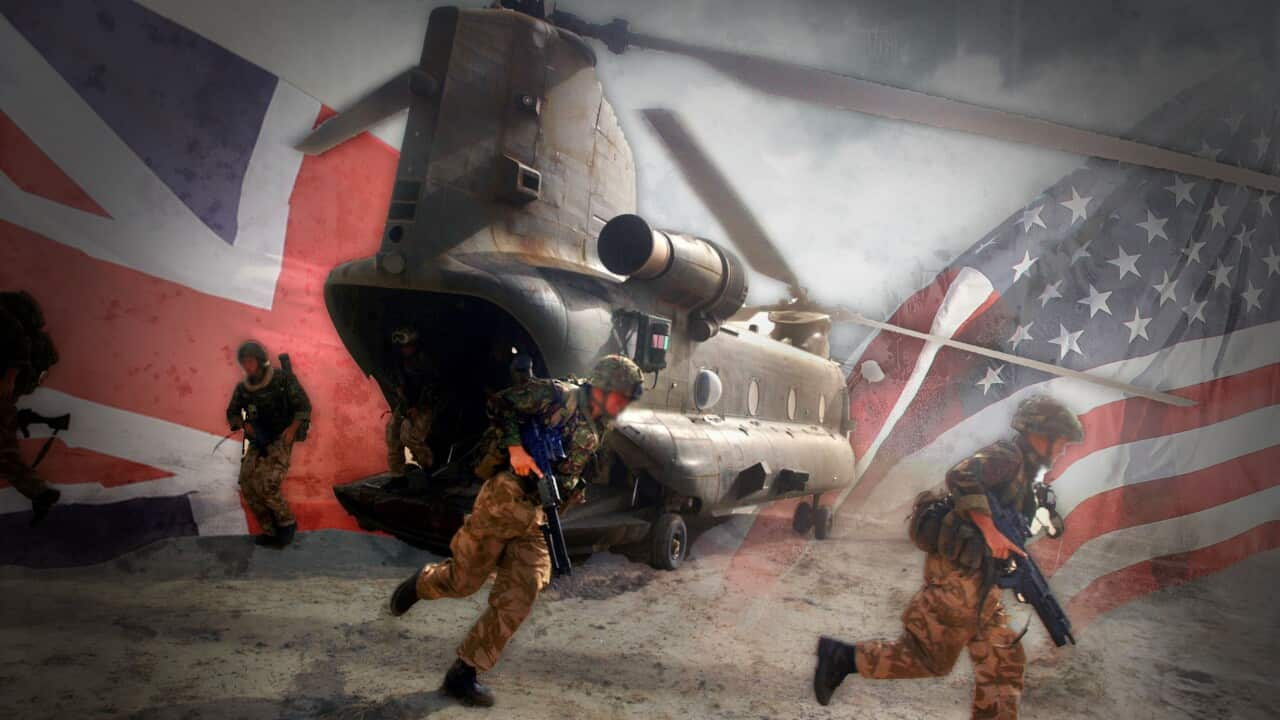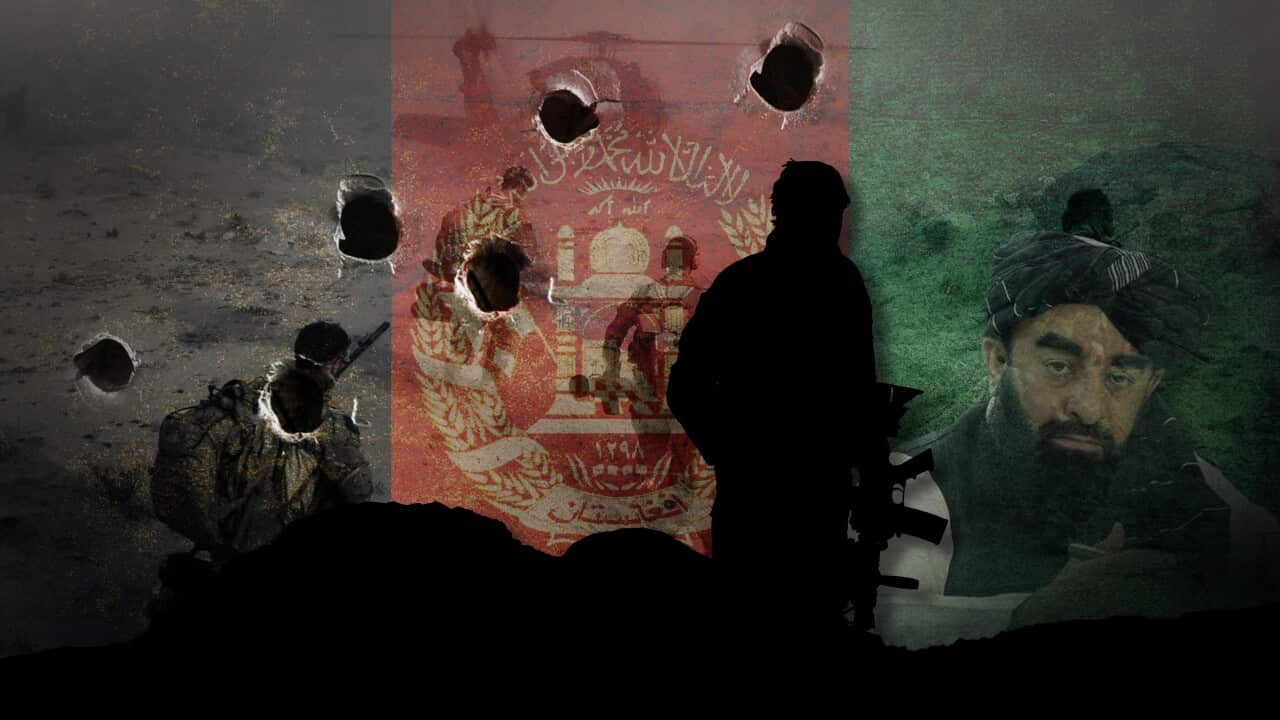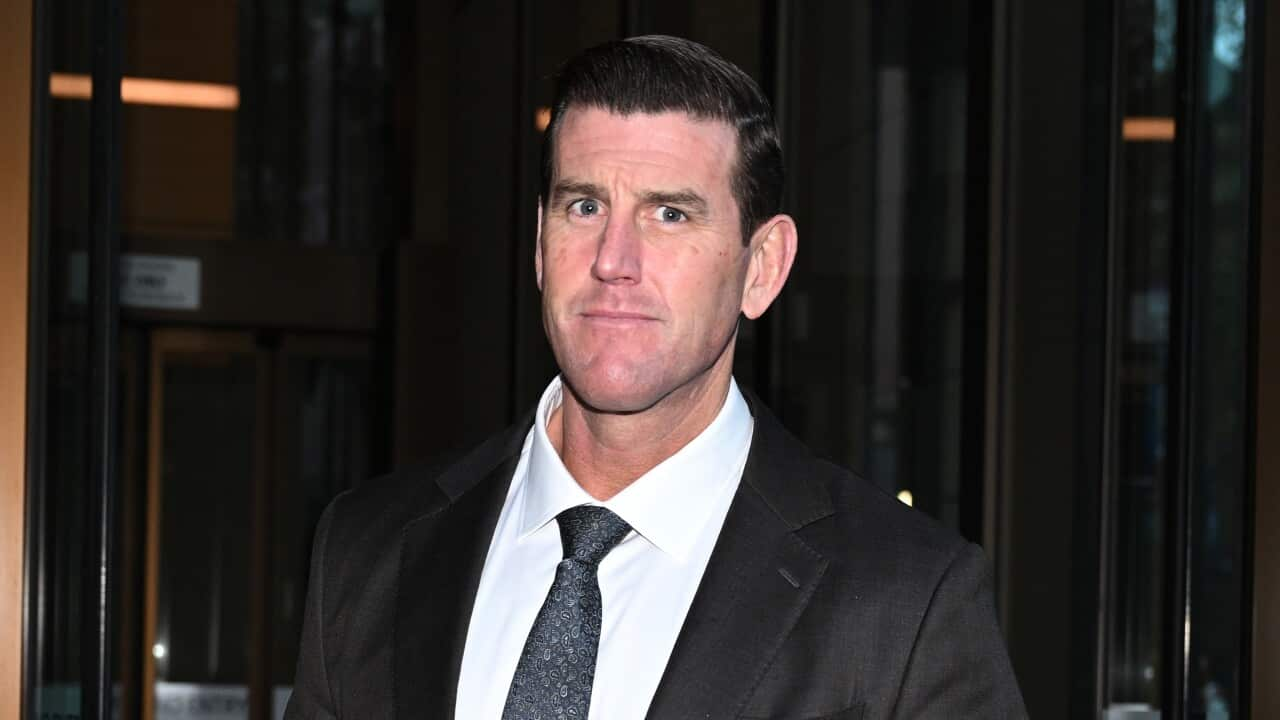KEY POINTS:
- Australia is grappling with allegations its special forces killed Afghan civilians.
- The US has refused to cooperate with an ICC probe into war crimes in Afghanistan.
- The UK has launched another inquiry after a BBC expose alleged serious crimes.
As Australia grapples with allegations , the US continues to decry international efforts to investigate claims against its forces.
The 2020 Brereton Report, committed by Australian special forces in Afghanistan, has prompted around 40 active war crimes investigations by the Office of the Special Investigator (OSI).
Australia joined the US and the UK in invading Afghanistan in 2001, overthrowing the Taliban before the militant group returned to power two decades later.

Around 40 war crimes allegations against Australian special forces are currently active. Source: AAP / Australian Department of Defence
Rawan Arraf, Australian Centre for International Justice executive director, described Australia's response as "quite remarkable" and hoped it would spark similar reckonings elsewhere.
“What Australia is doing is very important. It's leading the way in terms of Western countries in, at least what we’re seeing now, genuinely investigating allegations of crimes," she said.
"We're hoping [it has] a domino effect in the way that other countries will start to look seriously at what ... allegations arise there."
But what are American and British troops accused of? And could investigations work without their cooperation?
What's happening in the US?
The US has convicted its own troops for crimes in Afghanistan sporadically, though questions have been raised about the punishments meted out.
US soldier Andrew Holmes, who admitted shooting a 15-year old Afghan in a thrill killing before posing with his body in 2010, was released after serving four years in jail. Another in his unit, Jeremy Morlock, was sentenced to 24 years after admitting to murdering three Afghan civilians.
Soldier Robert Bales was sentenced to life in prison for murdering 16 Afghans civilians - including 11 family members - in a 2012 shooting spree and avoided the death penalty by pleading guilty. Media reports quoted Afghan witnesses who said multiple Americans were involved, but a US investigation ultimately ruled Bales was the sole perpetrator.

The Trump administration attacked the ICC investigation and placed sanctions on its senior figures. Source: AAP
An initial ICC examination found there was "reasonable basis" to believe US forces had committed "crimes of torture, outrages upon personal dignity and rape and other forms of sexual violence" in Afghanistan, as well as so-called CIA "black sites" in eastern Europe where detainees were transported.
The Trump administration decried the probe as a "kangaroo court" in 2019, imposing visa bans on ICC officials investigating crimes allegedly committed by US forces. The next year, it ratcheted up its attack by blacklisting senior ICC prosecutor Fatou Bensouda.
Although that was revoked by US President Joe Biden in 2021, his administration stressed it continues to "disagree strongly with the ICC’s actions relating to Afghanistan".
Around that time, that allegations detailed in the Brereton Report could harm military cooperation between the two countries.
The US State Department and US Department of Defense have been contacted for comment.
What about the UK?
The UK government shut down an investigation into alleged war crimes in Afghanistan - Operation Northmoor - before a charge was laid in 2019.
But a alleged that British special forces repeatedly murdered Afghan civilians "in cold blood", including one unit it said may have been responsible for 54 unlawful killings in a six-month period.
The allegations were similar to the ones levelled at Australian SAS troops, forces accused of planting evidence - like weapons - after a killing to frame the victim as a Taliban insurgent.
The four-year investigation also alleged that commanding officers failed to inform military police of potential war crimes, a crime under UK law.
The BBC's documentary itself opens with helmet camera vision, first aired by the ABC here, showing an Australian soldier shooting an unarmed Afghan man in a wheat field. That incident has led to the OSI earlier this year.
Despite the obvious parallels, the UK government did not immediately launch a Brereton-style investigation. Its Defence Ministry initially responded to the reports by saying British troops "served with courage and professionalism in Afghanistan".
But a new inquiry looking into alleged murders and cover-ups was announced in December. Describing the allegations as "extremely serious", chair Charles Haddon-Cave said the probe would be vital to "restoring the reputation of the military and the country".
How are war crimes prosecuted?
The ICC is a court of last resort, and can only intervene when a country cannot or won't investigate its own forces.
It has been investigating war crimes and crimes against humanity committed in Afghanistan by all sides - the Taliban, Afghan authorities, and foreign forces - since 2017.
The probe was suspended in 2020, but revived in 2021 with a catch: it would focus solely on crimes committed by the Taliban and Islamic State's offshoot in Afghanistan, IS-K. That meant investigations into US and other foreign forces would be put aside.
“I made a decision, based upon the evidence, that the worst crimes in terms of gravity and scale and extent seem to be committed by [IS-K] and also the Taliban,” ICC prosecutor Karim Khan said at the time.
But Ms Arraf from the Australian Centre for International Justice said the decision was met with "disappointment" by the victims and representatives of people impacted by Western forces.
“Prioritising the crimes of the Taliban is important. We don't disagree with it. But the broader point to make is that there's been pervasive impunity in relation to Afghanistan," she said.
"Victims and communities across Afghanistan have really been unfortunate.”
Ms Arraf said Australians would not be investigated by the ICC unless it believed the OSI probe was "not genuine".
"I don’t think you can say that at this stage, because of the process that's been set up."












